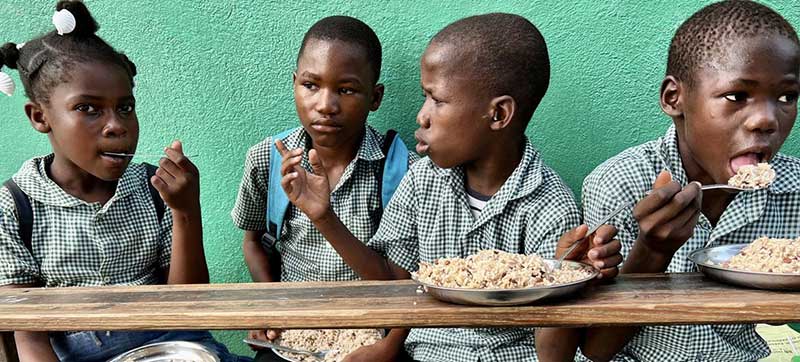WFP forced to slash food aid as half of all Haitians go hungry

New York: The UN World Food Programme (WFP) has been compelled to reduce the number of people receiving emergency food assistance in Haiti due to a lack of funding, affecting around 100,000 people, the agency reported on Monday.
This reduction in aid comes at a time when Haiti is grappling with a severe humanitarian crisis, with almost half of its population, approximately 4.9 million people, unable to access sufficient food.
Further cuts possible
“It’s tragic being unable to reach some of the most vulnerable Haitians this month. These cuts could not come at a worse time, as Haitians face a multi-layered humanitarian crisis, their lives and livelihoods upended by violence, insecurity, economic turmoil and climate shocks”, said Jean-Martin Bauer, WFP Country Director for Haiti.
“Unless we receive immediate funding, further devastating cuts cannot be ruled out.”
In various regions, similar crises arising from reduced funding have led to significant cuts in emergency aid provision. In West Africa, the number of individuals receiving crucial assistance from the WFP has been reduced from 11.6 million to around 6.2 million.
And in Syria, instead of providing aid to 5.5 million people, that figure has been reduced to three million who are being prioritised. In Jordan, approximately 50,000 out of 465,000 refugees will see their support cut, the agency has reported.
Severe shortfall
WFP's response plan in Haiti for the first half of 2023 is only 16 per cent funded, leaving a shortfall of $121 million needed to sustain vital humanitarian assistance until the end of the year.
In the first half of 2023, WFP was able to provide 450,000 school children in Haiti with a hot meal. For many, it is their only full meal of the day. However, without additional funds, almost half of these children will lose access to school meals when they return to class after the summer break.
“We are proud of what we’ve been able to achieve so far in 2023, thanks to support from our donors. We have the people, the plan, and the capacity to continue, but at this point, without immediate funding, we’re forced to make cuts which mean thousands of the most vulnerable Haitians won’t receive assistance this year,” said Mr. Bauer.
“This isn’t the time to cut back. It’s the time to step up. We can’t let Haitians down when they need us the most.”



